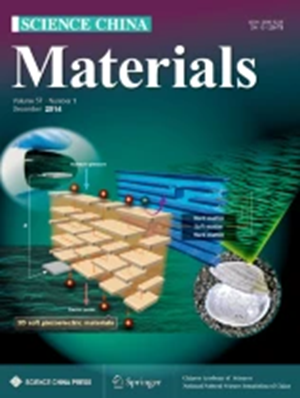Lithium sulfonate-based polyether gel polymer electrolytes with high ionic conductivity and uniform Li-ion transport for high-performance lithium metal batteries
Abstract
Lithium metal batteries (LMBs) using gel polymer electrolytes with satisfactory theoretical capacity and low cost hold great promise for high energy density storage systems. However, the inherently unwanted polarizations and uncontrolled lithium dendrites resulting from inferior Li-ion transporting efficiency hinder the practical application of conventional gel electrolytes. Herein, a highly conductive composite gel polymer electrolyte with effective Li-ion conducting channels is designed via swelling nanofibrous membrane, where the single-ion conducting polymer of lithium sulfonate-based polyether (DEBS-Li) used as the Li-ion accelerator is combined with poly(vinylidene fluoride-hexafluoropropylene) P(VDF-HFP) matrix by the electrospinning technology. The DEBS-Li having rich sulfonic groups can promote lithium salts dissociation via electrostatic interaction, thus expediting the ionic migration and enabling the as-developed gel electrolyte with high ionic conductivity (∼1.58× 10−3 S cm−1) and lithium transference number (0.62) at 25°C. Such optimization of ionic transfer kinetics can highly delay the nucleation time of lithium dendrite and significantly inhibit dendritic formation, which leads to a stable Li plating/stripping in the symmetrical battery over 250 h at 1.5 mA cm−2. Benefiting from these advantages, the Li∥LiFe-PO4 cell using the electrolyte realizes ultralong stable cycling over 500 cycles at a high rate of 10 C with ∼90% capacity retention. We believe this novel lithium sulfonate-based polyether gel polymer electrolyte has profound potential for practical applications in high-performance LMBs.

 求助内容:
求助内容: 应助结果提醒方式:
应助结果提醒方式:


